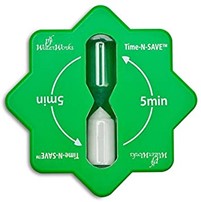Each year, the average American family wastes 9,400 gallons of water. This waste of water has major impacts on both the economy and the environment. Wasted water must be treated in a plant, using up extra energy. This increases costs for both the plant and the shower user. This also harms the environment, as the unneeded consumption of water depletes freshwater sources and disrupts ecosystems. Water heaters also use fossil fuels, and extra burning further harms the environment. 2,920 gallons of this wasted water are due to the shower alone. Being more sustainable in the shower can greatly help save energy and the environment.
Waiting for water to heat up is a major waste of water. An average shower (8.2 minutes using 17.2 gallons of water) wastes 3.44 gallons of water each use. Replacing a tank water heater with a tankless hot water heater can help with this water waste. It produces hot water on demand, cutting out the time needed to wait for the water to get hot. It is also more energy-efficient and only costs $15-40 per month. However, installation may be costly, around $400-1000. If one is willing to pay the steep up-front cost, they will save money in the future, around $15-25 a month.

If one is not able to purchase a tankless water heater, there are other ways to limit water waste. One way to lower water costs would be to limit showers to five minutes. There are many ways one can check their time. In the Greenbelt community, some people have hourglasses that can stick to the shower wall. Setting phone timers, playing a five-minute song, or counting backward from 300 also works. I have used both the hourglass and phone timers which are both very useful.

Another way someone can be more sustainable is in the shampoo or soap one uses. Shampoos can contain harmful chemicals that hurt both the user and the environment. These chemicals can be harmful on their own, but also how they are extracted. For example, some companies extract palm oil by clearing out rainforests. Other chemicals, such are triclosan, directly affect human hormone systems and harm aquatic life. Using alternatives such as organic shampoos are very beneficial. They will also be great for health in the long run, as they are less irritating and are better for one’s skin. The website “ethical consumer” has a lot of great information on ethical shampoo if you want to learn more.
Changing the way one showers is a simple yet effective way to be sustainable. It does not have to be expensive. In fact, limiting the time one showers will lower the water bill. Changes such as tankless water heaters and organic shampoos may seem expensive short term but may help save a lot of money long term. In Greenbelt, some of us have experimented with green shampoos and have worked on limiting our time in the shower. It does not matter if you are very wealthy or are lower income, we can all do our part to go green while getting clean!
Works Cited:
4 Ways to Measure a 5 Minute Shower | Sustainability at Harvard
Ethical Shampoo Brands | Shopping guide from Ethical Consumer
How Much Water Does the Average American Waste? (myheatworks.com)
Is a tankless water heater worth it? – Help Advisor Reviews (helpadvisors.org)
Is Taking Long Showers Bad for the Environment? | Impactful Ninja